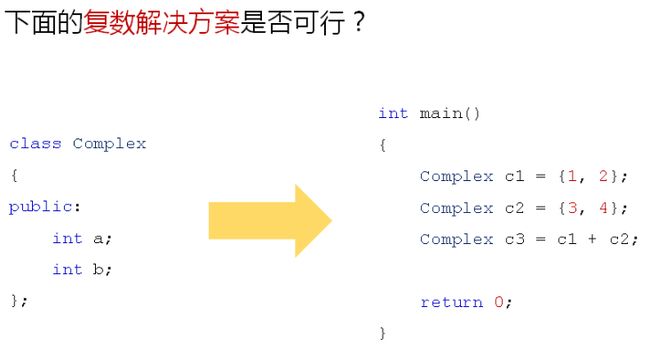- 《破局项目延期魔咒:构建全周期风险防控体系》
玩转数据库管理工具FOR DBLENS
数据库甘特图项目管理数据库开发大数据
在数字化转型加速的今天,某权威机构调研数据显示:72%的IT项目存在延期交付问题,其中38%的项目实际周期超出计划50%以上。项目延期不仅造成资源浪费,更可能引发客户信任危机。当项目计划屡屡失控、风险频发时,管理者需要以系统化思维重构项目管理体系。一、项目延期的根源解构需求蔓延综合症某智能工厂项目在实施阶段新增327项需求变更,导致交付周期延长11个月隐性需求显性化过程中的认知偏差,形成"需求黑洞
- sudo apt-get install package时出现E:无法定位软件包
God.v
ubuntulinuxcentos
sudoapt-getinstallpackage时出现E:无法定位软件包在Ubuntu上安装openssl-devel时遇到无法定位软件包的问题,查阅文章,大多是换源和在“软件和更新”中更换下载地址的方法,而我尝试过后并无卵用,如果接下来的方法不适用你的情况,你也不妨考虑以上两种办法。其实很简单,区分centos和Ubuntu等在安装文件时的名称差别,对于这两种图形界面来说,将openssl-d
- CSS特效花样鼠标悬停效果
DTcode7
HTML网站开发#前端基础入门三大核心之CSSHTMLCSSwebcss3网页开发
CSS特效花样鼠标悬停效果鼠标悬停效果概述基本概念与作用示例一:基本的颜色变化代码解释示例二:渐变背景色代码解释示例三:放大与阴影效果代码解释示例四:文字提示代码解释示例五:旋转和翻转代码解释实际工作中的使用技巧在现代Web开发中,良好的用户体验往往意味着不仅仅要有一个功能完备的应用程序,还需要具备吸引人的视觉效果。鼠标悬停效果便是提升网站交互性和吸引力的一种常见方式。本文将探讨如何运用CSS来实
- Android 12.0 WiFi连接流程分析之IP地址分配流程
安卓兼职framework应用工程师
android12.0Rom开发疑难问题分析androidtcp/ipwifi连接ip地址分配ip
1.前言在12.0的系统rom定制化开发中,对于wifi的定制功能也是比较多的,在关于wifi连接流程模块的分析,了解整个wifi连接流程也是非常重要的,接下来看下wifi的连接流程分析下相关功能实现2.WiFi连接流程分析之IP地址分配流程的核心类frameworks/opt/net/wifi/service/java/com/android/server/wifi/ClientModeImpl
- GStreamer —— 3.2、Qt+GStreamer+OpenCV制作图像处理播放器(对每帧图像处理),支持本地mp4文件、rtsp流、usb摄像头等(可跨平台,附源码)
信必诺
GStreamerQtGStreamerQt
运行效果 介绍 本项目是一个结合了Qt、GStreamer和OpenCV的跨平台图像处理播放器项目。该
- 简单工厂模式:思考与解读
智想天开
理解设计模式#初级简单工厂模式
原文地址:简单工厂模式:思考与解读更多内容请关注:深入思考与解读设计模式引言你是否遇到过这样的问题:在一个系统中,你需要创建不同类型的对象,而这些对象之间有很多相似之处,唯一的区别可能是某些细节或行为?如果每次都手动创建对象,会导致代码重复,并且难以扩展。如何才能有效地管理这些对象的创建?你是否想过,是否有一种机制可以在不暴露对象创建过程的情况下,提供统一的接口来生成对象?这就是简单工厂模式能够帮
- C语言中的结构体
NaZiMeKiY
C/C++c语言算法开发语言
一.结构体1.结构体的概念:结构体可以理解为自定义的数据类型,它是由一批数据组合而成的结构型数据2.结构体格式:struct结构体名字{成员1;成员2;...成员n;};案例:#include#includestructstudent{charname[100];intage;chargender;};intmain(){structstudents1;strcpy(s1.name,"zhangs
- CSS实现当鼠标停留在一个元素上时,使得两个元素的样式发生改变
Lipn
前端CSScss前端
这里我们实现一个鼠标停留在input框时,使得input和button两个元素的边框都变颜色首先该元素结构如下,HTML是这样的第一步:当鼠标悬停在input上时,使用css伪类选择器,代码如下:这里空格是后代选择器,:hover是伪类选择器.testinput:hover{}第二步:当鼠标悬停在input上时,选中button元素:从html可以看到input和button属于兄弟关系,相邻兄弟
- 流数据(Streaming Data)处理
人间无人事
javascript
在看代码之前,我们应当首先知道流数据与webSocket之间的区别(两者不能同一而论),因为存在区别所以在读取数据时使用相对较大的差距下面我将概述我对两者区别的一个总结(若有不对,请斧正)流数据(StreamingData)和WebSocket是两种不同的技术,但它们在实时数据传输方面有一些相似之处。以下是它们的区别和相同点:相同点1.实时性-两者都支持实时数据传输,适合需要低延迟的场景,如聊天应
- Maven简介
z迦在线
mavenjava
Maven简介Maven是Apache软件基金会的一个开源项目,是一个优秀的项目构建工具,它用来帮助开发者管理项目中的jar,以及jar之间的依赖关系、完成项目的编译(.java--->.class)、测试、打包(源代码--->.jar文件)和发布等工作。Maven是如何管理项目中的jar文件的?Maven简化了Java项目中的JAR文件管理,主要通过以下几个关键点:POM文件:Maven使用po
- 将MySQL数据同步到Elasticsearch作为全文检索数据的实战指南
格子先生Lab
全文检索mysqlelasticsearch
在现代应用中,全文检索是一个非常重要的功能,尤其是在处理大量数据时。Elasticsearch是一个强大的分布式搜索引擎,能够快速地进行全文检索、分析和可视化。而MySQL作为传统的关系型数据库,虽然能够处理结构化数据,但在全文检索方面的性能不如Elasticsearch。因此,将MySQL中的数据同步到Elasticsearch中,可以充分发挥两者的优势。本文将介绍如何将MySQL中的数据同步到
- CSS实现当鼠标悬停在一个元素上时,另一个元素的样式发生变化的效果
Wiktok
css前端
CSS可以实现当鼠标悬停在一个元素上时,另一个元素的样式发生变化的效果。可以通过以下几种方法来实现:1.使用兄弟选择器(AdjacentSiblingSelector)如果两个元素是兄弟关系(即它们有相同的父元素),可以使用+或~选择器来实现。示例代码:.element1:hover+.element2{background-color:yellow;}悬停在我上面另一个元素在这个例子中,当鼠标悬
- 设计模式-抽象工厂模式(Abstract Factory)
树懒_Zz
设计模式抽象工厂模式设计模式
抽象工厂模式是一种创建型设计模式,它能创建一系列相关的对象,而无需指定其具体类。譬如你正在开发一款家具组装系统。代码中包括一些产品:椅子(chair),沙发(sofa)和咖啡桌(CoffeeTable)然后基于这些产品形成一些列组合套餐装饰风艺术(ArtDeco)、维多利亚(Victorian)和现代(Mdern)。你需要设法单独生成每件家具对象,这样才能确保其风格一致。如果顾客收到的家具风格不一
- Pytorch中的torch.utils.data.Dataset 类
小白的高手之路
深度学习(DL)Pytorch实战深度学习pythonpytorch
1、使用方法fromtorch.utils.dataimportDataset2、torch.utils.data.Dataset类的定义classDataset(Generic[_T_co]):r"""Anabstractclassrepresentinga:class:`Dataset`.Alldatasetsthatrepresentamapfromkeystodatasamplesshou
- 实验7-2-3 求矩阵的局部极大值
范德蒙蒙
矩阵算法数据结构c语言
#includeintmain(){intm,n;scanf("%d%d",&m,&n);inta[m+1][n+1];//编号从1开始for(inti=1;ia[i-1][j]&&a[i][j]>a[i+1][j]&&a[i][j]>a[i][j-1]&&a[i][j]>a[i][j+1]){printf("%d%d%d\n",a[i][j],i,j);you=1;}}}if(you==0){p
- Python与区块链隐私保护技术:如何在去中心化世界中保障数据安全
Echo_Wish
Python!实战!区块链python去中心化
Python与区块链隐私保护技术:如何在去中心化世界中保障数据安全在区块链世界里,透明性和不可篡改性是两大核心优势,但这也带来了一个悖论——如何在公开账本的同时保障用户隐私?如果你的交易记录对所有人可见,如何防止敏感信息泄露?Python作为区块链开发中最受欢迎的语言之一,提供了强大的工具和库来增强隐私保护。本文将深入探讨区块链的隐私保护技术,并结合Python代码示例,带你了解如何在Web3时代
- HDFS相关的面试题
努力的搬砖人.
java面试hdfs
以下是150道HDFS相关的面试题,涵盖了HDFS的基本概念、架构、操作、数据存储、高可用性、权限管理、性能优化、容错机制、与MapReduce的结合、安全性、数据压缩、监控与管理、与YARN的关系、数据一致性、数据备份与恢复等方面,希望对你有所帮助。HDFS基本概念1.HDFS是什么?它的设计目标是什么?•HDFS是Hadoop分布式文件系统,设计目标是实现对大规模数据的高吞吐量访问,适用于一次
- 服务器虚拟化相关的面试题
努力的搬砖人.
java面试服务器其他
以下是服务器虚拟化相关的面试题,涵盖了服务器虚拟化的基础概念、技术原理、应用场景、性能优化、容错与高可用性、网络与存储、管理与监控、安全与备份、与其他技术的结合等方面,希望对你有所帮助。服务器虚拟化基础概念1.什么是服务器虚拟化?它的主要目的是什么?•服务器虚拟化是指通过虚拟化技术将一台物理服务器虚拟成多台虚拟机,每台虚拟机可以独立运行操作系统和应用程序。其主要目的是提高服务器的资源利用率,降低硬
- Flink相关面试题
努力的搬砖人.
面试java后端flink
以下是150道ApacheFlink面试题及其详细回答,涵盖了Flink的基础知识、核心架构、API使用、性能调优等多个方面,每道题目都尽量详细且简单易懂:Flink基础概念类1.什么是ApacheFlink?ApacheFlink是一个开源的流处理和批处理框架,能够实现快速、可靠、可扩展的大数据处理。它既可以处理无界的数据流,也可以处理有界的数据批,提供了低延迟和高吞吐量的实时数据处理能力。Fl
- 如何对关键字段进行脱敏(一)在使用Mybatis-plus执行查询
张瀚元782738120
mybatisjava
为了在读取用户表中的mobile字段时进行脱敏处理,并实现一个通用的方法以便将来对其他字段例如:邮箱、身份证、姓名等进行脱敏处理,可以采用以下步骤:1.添加依赖首先,在pom.xml文件中添加必要的依赖,包括SpringBoot、MyBatis-Plus和Hutool工具库:org.springframework.bootspring-boot-starter-webcom.baomidoumyb
- FastAPI Web框架 [1.9]
carefree798
FastAPIpython
表单数据fromfastapiimportFastAPI,Form#导入Form#表单数据#接收的不是JSON,而是表单字段时,要使用Formapp=FastAPI()@app.post("/login/")asyncdeflogin(username:str=Form(...),password:str=Form(...)#定义Form参数):return{"username":username
- 基于Azure云平台构建实时数据仓库
weixin_30777913
云计算azure开发语言sparkpython
设计Azure云架构方案实现AzureDeltaLake和AzureDatabricks,结合电商网站的流数据,构建实时数据仓库,支持T+0报表(如电商订单分析),具以及具体实现的详细步骤和关键PySpark代码。一、架构设计[电商网站]→[AzureEventHubs]→[AzureDatabricksStreaming]↓[AzureDeltaLake]←→[DatabricksSQLAnal
- shell 脚本搭建apache
好多知识都想学
apache
#!/bin/bash#SetApacheversiontoinstall##author:yuan#检查外网连接echo"检查外网连接..."pingwww.baidu.com-c3>/dev/null2>&1if[$?-eq0];then echo"外网通讯良好!"else echo"网络连接失败,请检查你的网络设置!" exit1fisleep5#检查并安装APR库echo"检查并安装
- 人脸识别的一些代码
饿了就干饭
CV相关人脸识别
1、cv2入门函数imread及其相关操作2、(详解)opencv里的cv2.resize改变图片大小Python3、机器学习之人脸识别face_recognition使用4、使用face_recognition进行人脸校准5、简单的人脸识别通用流程示意图(这个看着写的挺好的)6、face_recognition和图像处理中left、top、right、bottom解释7、使用pillow库对图片
- Nginx 在 Ubuntu 上的安装与配置指南
一回生二回熟
Ubuntunginxubuntu运维
Nginx在Ubuntu上的安装与配置指南Ubuntu的软件管理工具已经提供了Nginx的安装包,如果不需要借助Docker等其他容器化工具对Nginx进行管理,可以直接通过Ubuntu自带的软件管理工具轻松安装Nginx。本指南将详细介绍Nginx的安装过程、安装后的检查方法、服务的管理以及基本的配置步骤,帮助你快速上手并正确使用Nginx。1.安装Nginx安装Nginx非常简单,只需使用以下
- Ubuntu检查并启用 Nginx 的stream模块或重新安装支持stream模块的Nginx
一回生二回熟
Ubuntuubuntunginx
stream模块允许Nginx处理TCP和UDP流量,常用于负载均衡和端口转发等场景。本文将详细介绍如何检查Nginx是否支持stream模块,以及在需要时如何启用该模块。1.检查Nginx是否支持stream模块首先,需要确认当前安装的Nginx是否已经编译并启用了stream模块。可以通过以下命令查看Nginx的编译参数:nginx-V2>&1|grep--'--with-stream'•有输
- 在 Linux 中,lsblk 命令输出内容解释
冷冷清清中的风风火火
linux运维服务器
在Linux中,lsblk命令用于以树状结构列出所有块设备(如磁盘、分区、LVM逻辑卷等)的信息。以下是lsblk输出的详细解释和示例:1.示例输出NAMEMAJ:MINRMSIZEROTYPEMOUNTPOINTSsda8:00238.5G0disk├─sda18:10512M0part/boot/efi├─sda28:201G0part/boot└─sda38:30237G0part└─vg-
- 在 Linux 系统中,区分**磁盘(物理/虚拟存储设备)和分区(磁盘的逻辑划分)
冷冷清清中的风风火火
linux运维服务器
在Linux系统中,区分**磁盘(物理/虚拟存储设备)和分区(磁盘的逻辑划分)**是管理存储的基础。以下是详细的区分方法和操作示例:一、通过设备命名规则区分Linux中磁盘和分区的命名遵循特定规则:类型命名格式示例说明磁盘/dev/sdX/dev/sdasd表示SCSI/SATA磁盘,X为字母(a,b,c…)。/dev/nvmeXnY/dev/nvme0n1nvme表示NVMe磁盘,X为控制器编号
- Python从入门到精通的系统性学习路径
niuTaylor
编程区python学习开发语言
Python从入门到精通的系统性学习路径一、基础语法快速突破1.变量与基础操作#动态类型演示a=10#整型a=3.14#浮点型a="Python"#字符串a=[1,2,3]#列表#格式化输出进阶name="Alice"print(f"{name:*^20}")#居中填充输出:******Alice*******2.运算符优先级实战#常见运算符优先级练习result=5+3*2**2//(4%3)p
- YOLO算法全面改进指南(二)
niuTaylor
YOLO改进YOLO算法
以下是为YOLO系列算法设计的系统性改进框架,结合前沿技术与多领域创新,提供可支持高水平论文发表的详细改进思路。本方案整合了轻量化设计、多模态融合、动态特征优化等创新点,并给出可验证的实验方向。一、多模态提示驱动的开放场景检测系统1.核心创新三模态提示机制:文本提示编码器:基于RepRTA(可重参数化区域文本对齐)构建轻量级文本编码网络,将自然语言描述映射为128维语义向量。视觉提示编码器:采用S
- Nginx负载均衡
510888780
nginx应用服务器
Nginx负载均衡一些基础知识:
nginx 的 upstream目前支持 4 种方式的分配
1)、轮询(默认)
每个请求按时间顺序逐一分配到不同的后端服务器,如果后端服务器down掉,能自动剔除。
2)、weight
指定轮询几率,weight和访问比率成正比
- RedHat 6.4 安装 rabbitmq
bylijinnan
erlangrabbitmqredhat
在 linux 下安装软件就是折腾,首先是测试机不能上外网要找运维开通,开通后发现测试机的 yum 不能使用于是又要配置 yum 源,最后安装 rabbitmq 时也尝试了两种方法最后才安装成功
机器版本:
[root@redhat1 rabbitmq]# lsb_release
LSB Version: :base-4.0-amd64:base-4.0-noarch:core
- FilenameUtils工具类
eksliang
FilenameUtilscommon-io
转载请出自出处:http://eksliang.iteye.com/blog/2217081 一、概述
这是一个Java操作文件的常用库,是Apache对java的IO包的封装,这里面有两个非常核心的类FilenameUtils跟FileUtils,其中FilenameUtils是对文件名操作的封装;FileUtils是文件封装,开发中对文件的操作,几乎都可以在这个框架里面找到。 非常的好用。
- xml文件解析SAX
不懂事的小屁孩
xml
xml文件解析:xml文件解析有四种方式,
1.DOM生成和解析XML文档(SAX是基于事件流的解析)
2.SAX生成和解析XML文档(基于XML文档树结构的解析)
3.DOM4J生成和解析XML文档
4.JDOM生成和解析XML
本文章用第一种方法进行解析,使用android常用的DefaultHandler
import org.xml.sax.Attributes;
- 通过定时任务执行mysql的定期删除和新建分区,此处是按日分区
酷的飞上天空
mysql
使用python脚本作为命令脚本,linux的定时任务来每天定时执行
#!/usr/bin/python
# -*- coding: utf8 -*-
import pymysql
import datetime
import calendar
#要分区的表
table_name = 'my_table'
#连接数据库的信息
host,user,passwd,db =
- 如何搭建数据湖架构?听听专家的意见
蓝儿唯美
架构
Edo Interactive在几年前遇到一个大问题:公司使用交易数据来帮助零售商和餐馆进行个性化促销,但其数据仓库没有足够时间去处理所有的信用卡和借记卡交易数据
“我们要花费27小时来处理每日的数据量,”Edo主管基础设施和信息系统的高级副总裁Tim Garnto说道:“所以在2013年,我们放弃了现有的基于PostgreSQL的关系型数据库系统,使用了Hadoop集群作为公司的数
- spring学习——控制反转与依赖注入
a-john
spring
控制反转(Inversion of Control,英文缩写为IoC)是一个重要的面向对象编程的法则来削减计算机程序的耦合问题,也是轻量级的Spring框架的核心。 控制反转一般分为两种类型,依赖注入(Dependency Injection,简称DI)和依赖查找(Dependency Lookup)。依赖注入应用比较广泛。
- 用spool+unixshell生成文本文件的方法
aijuans
xshell
例如我们把scott.dept表生成文本文件的语句写成dept.sql,内容如下:
set pages 50000;
set lines 200;
set trims on;
set heading off;
spool /oracle_backup/log/test/dept.lst;
select deptno||','||dname||','||loc
- 1、基础--名词解析(OOA/OOD/OOP)
asia007
学习基础知识
OOA:Object-Oriented Analysis(面向对象分析方法)
是在一个系统的开发过程中进行了系统业务调查以后,按照面向对象的思想来分析问题。OOA与结构化分析有较大的区别。OOA所强调的是在系统调查资料的基础上,针对OO方法所需要的素材进行的归类分析和整理,而不是对管理业务现状和方法的分析。
OOA(面向对象的分析)模型由5个层次(主题层、对象类层、结构层、属性层和服务层)
- 浅谈java转成json编码格式技术
百合不是茶
json编码java转成json编码
json编码;是一个轻量级的数据存储和传输的语言
在java中需要引入json相关的包,引包方式在工程的lib下就可以了
JSON与JAVA数据的转换(JSON 即 JavaScript Object Natation,它是一种轻量级的数据交换格式,非
常适合于服务器与 JavaScript 之间的数据的交
- web.xml之Spring配置(基于Spring+Struts+Ibatis)
bijian1013
javaweb.xmlSSIspring配置
指定Spring配置文件位置
<context-param>
<param-name>contextConfigLocation</param-name>
<param-value>
/WEB-INF/spring-dao-bean.xml,/WEB-INF/spring-resources.xml,
/WEB-INF/
- Installing SonarQube(Fail to download libraries from server)
sunjing
InstallSonar
1. Download and unzip the SonarQube distribution
2. Starting the Web Server
The default port is "9000" and the context path is "/". These values can be changed in &l
- 【MongoDB学习笔记十一】Mongo副本集基本的增删查
bit1129
mongodb
一、创建复本集
假设mongod,mongo已经配置在系统路径变量上,启动三个命令行窗口,分别执行如下命令:
mongod --port 27017 --dbpath data1 --replSet rs0
mongod --port 27018 --dbpath data2 --replSet rs0
mongod --port 27019 -
- Anychart图表系列二之执行Flash和HTML5渲染
白糖_
Flash
今天介绍Anychart的Flash和HTML5渲染功能
HTML5
Anychart从6.0第一个版本起,已经逐渐开始支持各种图的HTML5渲染效果了,也就是说即使你没有安装Flash插件,只要浏览器支持HTML5,也能看到Anychart的图形(不过这些是需要做一些配置的)。
这里要提醒下大家,Anychart6.0版本对HTML5的支持还不算很成熟,目前还处于
- Laravel版本更新异常4.2.8-> 4.2.9 Declaration of ... CompilerEngine ... should be compa
bozch
laravel
昨天在为了把laravel升级到最新的版本,突然之间就出现了如下错误:
ErrorException thrown with message "Declaration of Illuminate\View\Engines\CompilerEngine::handleViewException() should be compatible with Illuminate\View\Eng
- 编程之美-NIM游戏分析-石头总数为奇数时如何保证先动手者必胜
bylijinnan
编程之美
import java.util.Arrays;
import java.util.Random;
public class Nim {
/**编程之美 NIM游戏分析
问题:
有N块石头和两个玩家A和B,玩家A先将石头随机分成若干堆,然后按照BABA...的顺序不断轮流取石头,
能将剩下的石头一次取光的玩家获胜,每次取石头时,每个玩家只能从若干堆石头中任选一堆,
- lunce创建索引及简单查询
chengxuyuancsdn
查询创建索引lunce
import java.io.File;
import java.io.IOException;
import org.apache.lucene.analysis.Analyzer;
import org.apache.lucene.analysis.standard.StandardAnalyzer;
import org.apache.lucene.document.Docume
- [IT与投资]坚持独立自主的研究核心技术
comsci
it
和别人合作开发某项产品....如果互相之间的技术水平不同,那么这种合作很难进行,一般都会成为强者控制弱者的方法和手段.....
所以弱者,在遇到技术难题的时候,最好不要一开始就去寻求强者的帮助,因为在我们这颗星球上,生物都有一种控制其
- flashback transaction闪回事务查询
daizj
oraclesql闪回事务
闪回事务查询有别于闪回查询的特点有以下3个:
(1)其正常工作不但需要利用撤销数据,还需要事先启用最小补充日志。
(2)返回的结果不是以前的“旧”数据,而是能够将当前数据修改为以前的样子的撤销SQL(Undo SQL)语句。
(3)集中地在名为flashback_transaction_query表上查询,而不是在各个表上通过“as of”或“vers
- Java I/O之FilenameFilter类列举出指定路径下某个扩展名的文件
游其是你
FilenameFilter
这是一个FilenameFilter类用法的例子,实现的列举出“c:\\folder“路径下所有以“.jpg”扩展名的文件。 1 2 3 4 5 6 7 8 9 10 11 12 13 14 15 16 17 18 19 20 21 22 23 24 25 26 27 28
- C语言学习五函数,函数的前置声明以及如何在软件开发中合理的设计函数来解决实际问题
dcj3sjt126com
c
# include <stdio.h>
int f(void) //括号中的void表示该函数不能接受数据,int表示返回的类型为int类型
{
return 10; //向主调函数返回10
}
void g(void) //函数名前面的void表示该函数没有返回值
{
//return 10; //error 与第8行行首的void相矛盾
}
in
- 今天在测试环境使用yum安装,遇到一个问题: Error: Cannot retrieve metalink for repository: epel. Pl
dcj3sjt126com
centos
今天在测试环境使用yum安装,遇到一个问题:
Error: Cannot retrieve metalink for repository: epel. Please verify its path and try again
处理很简单,修改文件“/etc/yum.repos.d/epel.repo”, 将baseurl的注释取消, mirrorlist注释掉。即可。
&n
- 单例模式
shuizhaosi888
单例模式
单例模式 懒汉式
public class RunMain {
/**
* 私有构造
*/
private RunMain() {
}
/**
* 内部类,用于占位,只有
*/
private static class SingletonRunMain {
priv
- Spring Security(09)——Filter
234390216
Spring Security
Filter
目录
1.1 Filter顺序
1.2 添加Filter到FilterChain
1.3 DelegatingFilterProxy
1.4 FilterChainProxy
1.5
- 公司项目NODEJS实践0.1
逐行分析JS源代码
mongodbnginxubuntunodejs
一、前言
前端如何独立用nodeJs实现一个简单的注册、登录功能,是不是只用nodejs+sql就可以了?其实是可以实现,但离实际应用还有距离,那要怎么做才是实际可用的。
网上有很多nod
- java.lang.Math
liuhaibo_ljf
javaMathlang
System.out.println(Math.PI);
System.out.println(Math.abs(1.2));
System.out.println(Math.abs(1.2));
System.out.println(Math.abs(1));
System.out.println(Math.abs(111111111));
System.out.println(Mat
- linux下时间同步
nonobaba
ntp
今天在linux下做hbase集群的时候,发现hmaster启动成功了,但是用hbase命令进入shell的时候报了一个错误 PleaseHoldException: Master is initializing,查看了日志,大致意思是说master和slave时间不同步,没办法,只好找一种手动同步一下,后来发现一共部署了10来台机器,手动同步偏差又比较大,所以还是从网上找现成的解决方
- ZooKeeper3.4.6的集群部署
roadrunners
zookeeper集群部署
ZooKeeper是Apache的一个开源项目,在分布式服务中应用比较广泛。它主要用来解决分布式应用中经常遇到的一些数据管理问题,如:统一命名服务、状态同步、集群管理、配置文件管理、同步锁、队列等。这里主要讲集群中ZooKeeper的部署。
1、准备工作
我们准备3台机器做ZooKeeper集群,分别在3台机器上创建ZooKeeper需要的目录。
数据存储目录
- Java高效读取大文件
tomcat_oracle
java
读取文件行的标准方式是在内存中读取,Guava 和Apache Commons IO都提供了如下所示快速读取文件行的方法: Files.readLines(new File(path), Charsets.UTF_8); FileUtils.readLines(new File(path)); 这种方法带来的问题是文件的所有行都被存放在内存中,当文件足够大时很快就会导致
- 微信支付api返回的xml转换为Map的方法
xu3508620
xmlmap微信api
举例如下:
<xml>
<return_code><![CDATA[SUCCESS]]></return_code>
<return_msg><![CDATA[OK]]></return_msg>
<appid><
